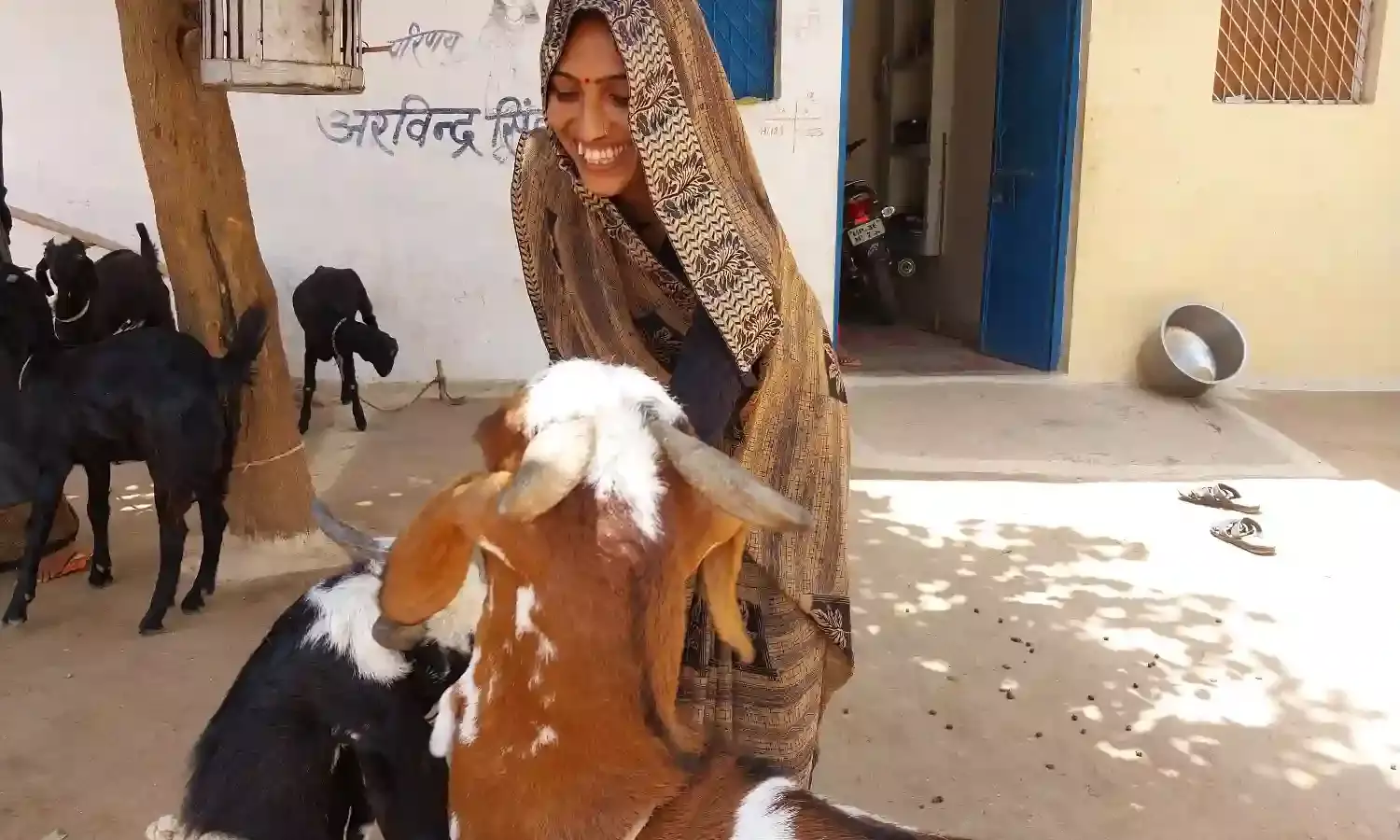Meet Pashu Sakhis, The Goat’s Best Buddy
Many villages of Bundelkhand employ Pashu Sakhis or animal caregivers

Bundelkhand, a dry region spanning Madhya Pradesh and Uttar Pradesh, two of India’s largest states, conjures up images of women covering long distances in the sun or queueing up at hand pumps for fetching water in the villages.
In this parched region where every drop of water counts, livestock is an asset for farmers, and comes to their aid when crops fail. Goats are preferred over cattle as the latter consume a lot of water.
Keeping in mind the economic importance of goats, it is common to find ‘pashu sakhis’ or animal caregivers in many of Bundelkhand’s villages where goats provide a direct source of livelihood for landless households, and a secondary means of income for marginal farmers. Chosen from the community, women, who act as ‘pashu sakhis’, receive basic training to help them work with goat keepers.
In Papawani village of Tikamgarh district of Madhya Pradesh, which comes under Bundelkhand, resident Anita Rajput helps two ‘pashu sakhis’ perform their daily task. Rajput is herself a ‘samuh sakhi’, a team leader, who helps mobilise self-help groups which ensure savings in rural households.
Pushpa Lodhi, a ‘pashu sakhi’ who has been mobilised by non-profit Manjari Foundation which works at the grassroots level on water conservation, described her daily activity. “I visit houses in the village and find out how owners take care of their goats, and ensure that the animals are given proper feed for growth, water and medicines if sick.”
However, if people like Lodhi fail to treat the goats on their own, the keepers are advised to approach veterinary services care. Vaccination is provided by veterinary doctors and sometimes extension workers. But deworming of the livestock is done by ‘pashu sakhis’.
Lodhi underwent a two-day training in Tikamgarh on how to treat sick goats in the village. Her friend, Dhanwati Lodhi, said that she was drawn to animals, and the work made her happy. “There is often not a decent level of income from farming due to water scarcity and migration is high. So, people prefer goats which fetch them instant money when sold,” Dhanwati said.
Rajesh Ahirwar, who works for Manjari at the ground level, made it clear that the women make daily visits to households to ensure that sick animals receive first aid and undergo deworming whenever necessary. “They are not qualified veterinary doctors but are doing their best under the circumstances to ensure that goats which fetch a good price are well cared for.”
As part of a daily routine, ‘pashu sakhis’ such as Pushpa and Dhanwati look after deworming, the need for vaccinating goats at the proper time, feeding practices and facilitating market linkages.
In Bundelkhand, most of the times the herd size of goats is usually small but many families keep goats and sell the animals for meat when they attain a certain age.
In Khushipura village of Tikamgarh ‘pashu sakhi’ Malti Lodhi informed that almost all households have goats. “Goats are sold when they mature in age only for meat and milk is not preferred that much. Big goats fetch a keeper up to Rs 8,000-Rs 10,000. Many women who are part of self-help groups now prefer to keep goats for money. Some of them buy the animals after taking loans,” Lodhi said.
One of the main aims behind the mobilisation of ‘pashu sakhis’ was to reduce goat mortality through doorstep services. Besides this, camps are also held for ensuring vaccination of the animals. Generally, 75 goat rearers come under one ‘pashu sakhi’.
Often selling goats doesn’t come easy as proper prices elude keepers. On a hot afternoon, owner Saroj Pal was tending to her goats at a roadside makeshift place. The woman from the Pal community is a resident of Sunderpur gram panchayat in Tikamgarh.
Women from Pal and Lodhi communities generally keep goats for livelihood. Pal referred to the Khatik system in which the buyer contacts farmers, usually bargains and then buys goats. “But due to this, herders lose out and middlemen get benefits. Goats should be paid according to body weight. But there is no negotiation,” Pal said.
In a village called Majna where the population stands at about 8000 ‘pashu sakhi’ Manisha Kushwaha treats goats with Neblon powder, an ayurvedic veterinary medicine for healing loose motions.
About 110 households have goats in the village and some families have 35 animals in a herd while some have just three animals.
Sometimes, a mineral mixture which resembles the shape of a round soap is also given to goats for licking. It has 28 other ingredients and is usually hung from a high place. Goats are also bathed with an anti-lice soap.
All Photographs Deepanwita Gita Niyogi



